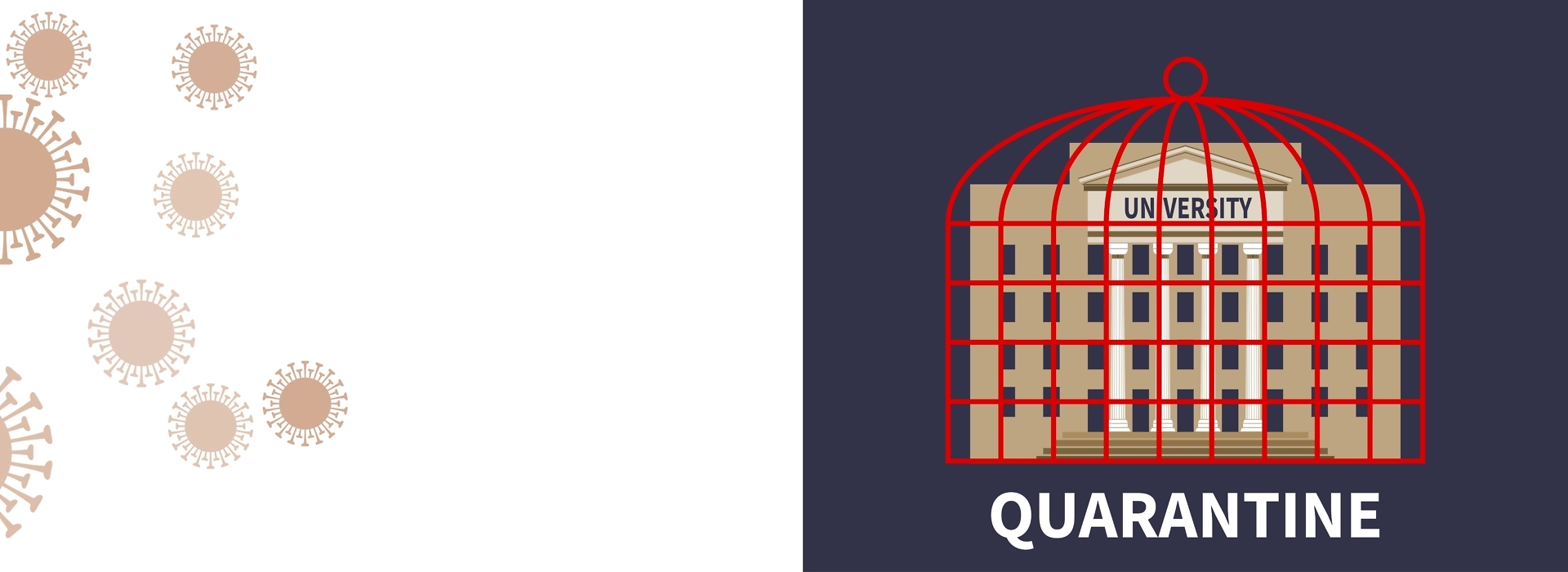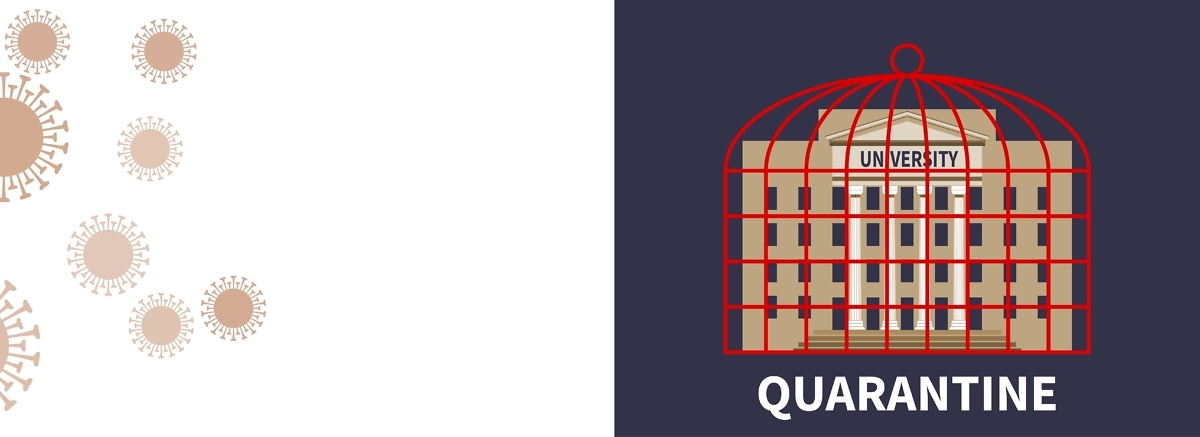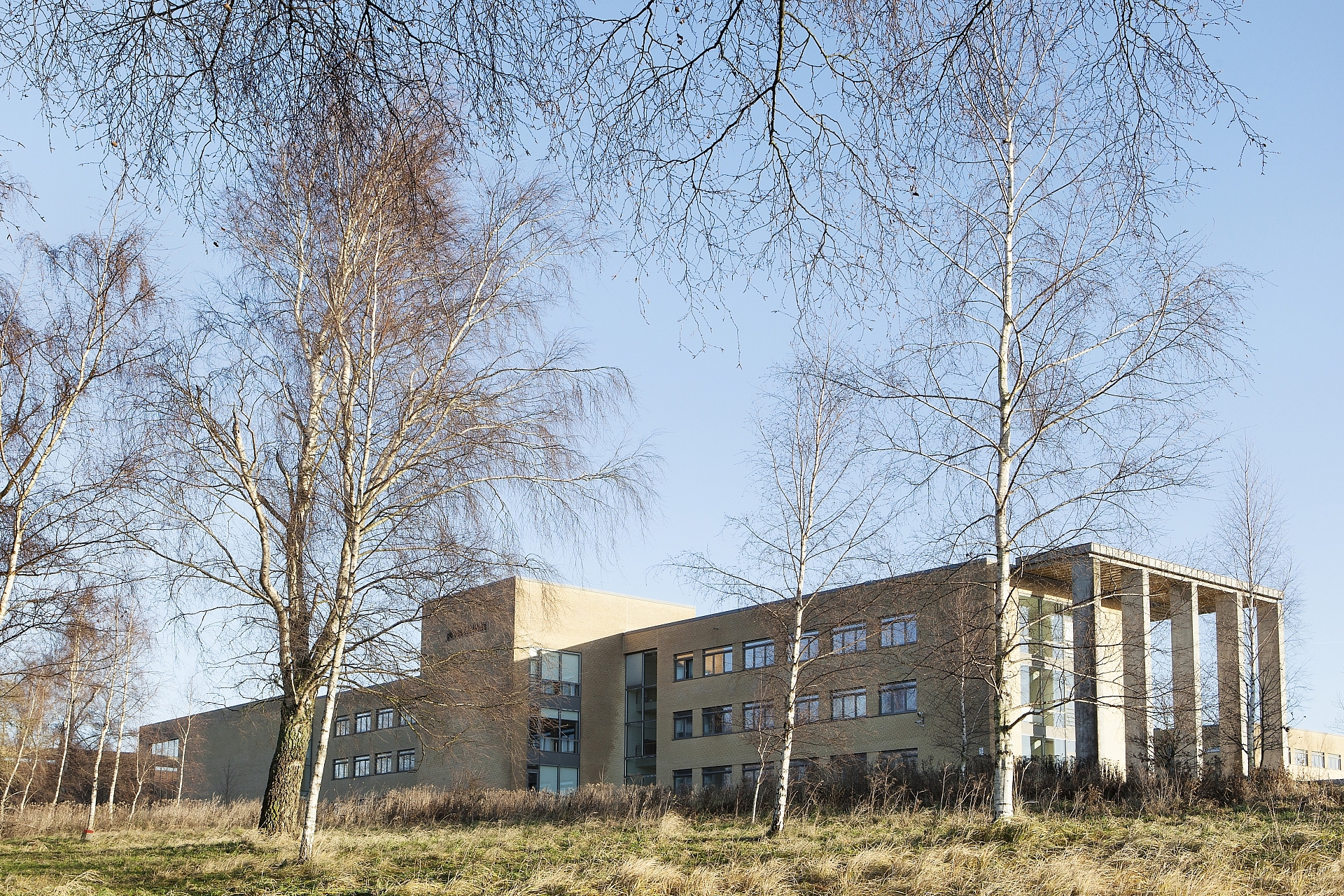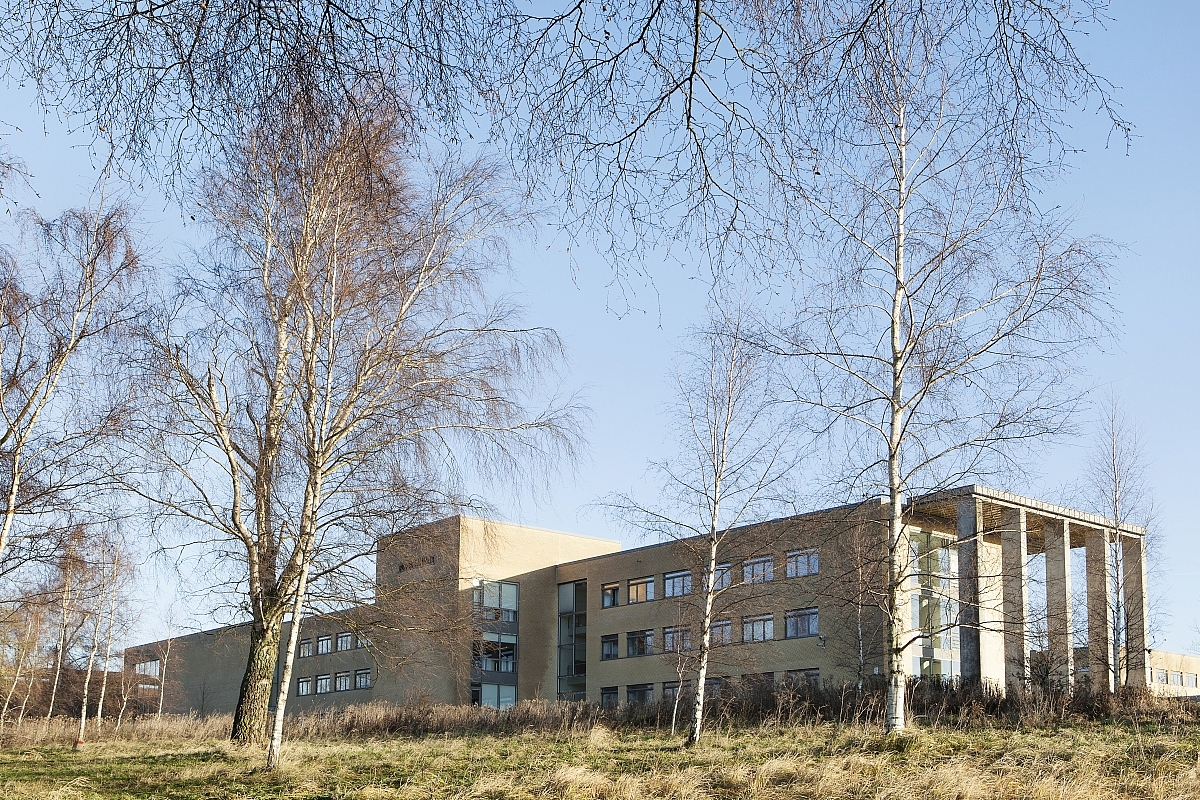

Many students listened in suspense on the 11th of March when the Danish Prime Minister, Mette Frederiksen, held a press conference at 8 p.m. about the current state of the corona virus’ impact on Denmark. At 20:38 p.m. the message many was anticipating, but feared, was delivered: The universities had to lock down for initially 14 days (which was extended to indefinitely). This raised many challenges as for how the students were to complete this semester; a puzzle the RUC administration has worked hard to solve.
The Educational Contingency Committee
It was an extraordinary situation RUC was put in on the 11th of March, but the RUC administration had foreseen a potential lock down. Still, they knew they faced many new challenges in securing the students’ education. Maria Volf Lindhardt, Deputy Director of Education and Students, explains:
»It was surreal to go to work on the 12th of March because we suddenly had to adjust to a completely new way of working and providing education. We had, on the other hand, expected these changes. We had asked the employees to bring home their computers a few days ahead, and we had already begun planning distance learning,« says Maria Volf Lindhardt and continues:
»We formed an extraordinary Educational Contingency Committee to coordinate the education across departments and to ensure that everyone used Microsoft Teams. We wanted to make sure the students received coordinated information to minimize confusion and contradicting statements.«
»First we had to identify on which exams we had to take action because the exam form was not possible in times of lock-down.«
Bodil Damsgaard, Deputy Director at the Department of Social Sciences and Business.The Educational Contingency Committee consists of Maria Volf Lindhardt, the four Department Deputy Directors and Deputy Manager of Education Maria Louise Søndergaard. They met on Thursday the 12th of March to discuss how to ensure the same level of educational standard all through distance learning. According to Deputy Director at the Department of Social Sciences and Business, Bodil Damsgaard, the primary focus of the meeting was to adjust the framework of this semester to the new conditions:
»First we had to identify on which exams we had to take action because the exam form was not possible in times of lock-down. Legally, we were allowed to make changes, but under the principle of “as few changes as possible” – a principle which is also for the sake of the students.«
The Educational Contingency Committee are working with the Student Council to ensure the students have influence on the decisions of the committee. Maria Volf Lindhardt believes that the approaches through StudentHub can only represent a fraction of the students and she is very pleased with the cooperation with the Student Council:
»We have worked very well with the Student Council in evaluating the students’ wishes. We can always observe the approaches made in StudentHub; however, the Student Council represents a different fraction of the students whose opinions we would like to include as well.«
This stance is backed by the Student Council board member and Vicechair at the Academic Council, Sif Stokholm, who believes the administration as a whole has been very inclusive and interested in the students’ input:
»We definitely felt that the administration was working under pressure after the 11th of March which is why we really appreciate their inclusion of the Student Council. It is naturally tricky to advice the University Director directly, but we are in communication with the Educational Contingency Committee in order to offer advice on both current affairs and how to plan for what comes next.«
»I cannot imagine that 250 new students are allowed to flock together in the auditoriums in August, and this raises the question of how we are to decide who can be present and who will receive education online.«
Peter Kragelund, Head of the Department of Social Sciences and Business.Shared knowledge and new ways of education
Many of the Heads and Deputy Directors of the departments at RUC are positive that this semesters’ distance learning will have an impact on the educational structure in the future, and agree that it is essential to share knowledge amongst the professors at the university of what worked and what did not.
Although the preparations for the corona lock down had already begun before the 11th of March at the Department of Social Sciences and Business many professors where still forced to quickly adapt to this new way of teaching.
»The corona lockdown has caused a great shift towards online education for many of our educators. You could even say that they have been pushed into the technological age by covid-19! We have educators who is still struggling a bit with booking a meeting in Outlook but who now have classes in Teams. This is something we would like to take advantage of in the future,« says Peter Kragelund, Head of the Department of Social Sciences and Business.
Many educators were not prepared for this transition into distanced learning, and the Heads of Departments are proud of the way their employees have embraced the challenge to find new and interesting ways of educating.
»Everyday life has obviously changed a lot for both professors and students, and a whole new range of skills are demanded. I am under the impression that many tackles these obstacles very well. A student collaborated, for example, with a professor on a course at my department by drawing what the professor was presenting, as he did it,« says Head of Department of Science and Environment, Susanne Sørensen.
Reopening campus
The administration at RUC has yet to present a plan on how RUC will be reopening – primarily due to the lack of further instructions from Prime Minister Mette Frederiksen and the Ministry of Higher Education and Science.
»It is obvious that we cannot reopen campus in just one day. We have to follow the guidelines of the government and, at the same time, aim towards a full cross-coordination with the other universities in reopening for example the laboratories and resuming the research programmes,« says Maria Volf Lindhardt.
Peter Kragelund expects not only challenges this semester; he also anticipates major differences in how the entire educational system at RUC will evolve in the forthcoming semester:
»The chances of knowing what the next semester will bring are very slim; we can, however, be certain that the consequences of covid-19 do not end on the 10th of May. I cannot imagine that 250 new students are allowed to flock together in the auditoriums in August, and this raises the question of how we are to decide who can be present and who will receive education online,« says Peter Kragelund.

